WARTIME FORCED LABOR DISPUTE
입력 2019.07.17 (15:02)
수정 2019.07.17 (16:45)
읽어주기 기능은 크롬기반의
브라우저에서만 사용하실 수 있습니다.
[Anchor Lead]
The presidential office has rejected Japan's request to form a third party arbitration panel, to resolve disputes surrounding South Korean Supreme Court rulings on Tokyo's wartime forced labor. Meanwhile, Seoul is also continuing a hard-line response to Japan's export restrictions, with the President making his stance very clear through his messages. For our first story, we take a look at why the top office found Japan's offer unacceptable.
[Pkg]
On June 19th, Japan requested the formation of a third party arbitration panel to discuss the wartime forced labor issue. It said the offer is in line with a treaty the two countries signed in 1965 related to colonial matters. For the makeup of the mediation panel, Tokyo proposed that each side select a country that will choose one member each for the panel. And these countries will then select another country which will also choose a panel member. Japan had requested that South Korea respond by Thursday, but the presidential office has rejected the offer even before the deadline. Two reasons were given for the rejection. One is that in a country where the rule of law clearly separates the three government branches, the administration cannot interfere in judicial rulings. The second is that South Korea is not obligated to accept Japan's offer because it has not consented to Japan activating article 3 of the 1965 agreement in the first place. Cheong Wa Dae said the Seoul government will not convey any response to Japan. It also affirmed that its position on resolving the forced labor issue remains unchanged. The office said it reviewed the compensation option of South Korean and Japanese firms joining to create a joint fund, noting the victims support this plan. But it also said that a compensation plan involving the South Korean government is not even under review. Cheong Wa Dae says it cannot accept Japan's offer because it goes against principles, however it intends to continue diplomatic efforts toward a resolution.
[Soundbite] PRES. MOON JAE-IN(TOP AIDES MEETING, JUL. 16) : "Korea seeks talks to discuss a reasonable solution the victims and the Korean and Japanese public can find acceptable."
If Seoul fails to respond to Japan's offer by Thursday, Tokyo may impose further retaliatory measures while the bitter standoff between the two sides is expected to continue for the time being.
The presidential office has rejected Japan's request to form a third party arbitration panel, to resolve disputes surrounding South Korean Supreme Court rulings on Tokyo's wartime forced labor. Meanwhile, Seoul is also continuing a hard-line response to Japan's export restrictions, with the President making his stance very clear through his messages. For our first story, we take a look at why the top office found Japan's offer unacceptable.
[Pkg]
On June 19th, Japan requested the formation of a third party arbitration panel to discuss the wartime forced labor issue. It said the offer is in line with a treaty the two countries signed in 1965 related to colonial matters. For the makeup of the mediation panel, Tokyo proposed that each side select a country that will choose one member each for the panel. And these countries will then select another country which will also choose a panel member. Japan had requested that South Korea respond by Thursday, but the presidential office has rejected the offer even before the deadline. Two reasons were given for the rejection. One is that in a country where the rule of law clearly separates the three government branches, the administration cannot interfere in judicial rulings. The second is that South Korea is not obligated to accept Japan's offer because it has not consented to Japan activating article 3 of the 1965 agreement in the first place. Cheong Wa Dae said the Seoul government will not convey any response to Japan. It also affirmed that its position on resolving the forced labor issue remains unchanged. The office said it reviewed the compensation option of South Korean and Japanese firms joining to create a joint fund, noting the victims support this plan. But it also said that a compensation plan involving the South Korean government is not even under review. Cheong Wa Dae says it cannot accept Japan's offer because it goes against principles, however it intends to continue diplomatic efforts toward a resolution.
[Soundbite] PRES. MOON JAE-IN(TOP AIDES MEETING, JUL. 16) : "Korea seeks talks to discuss a reasonable solution the victims and the Korean and Japanese public can find acceptable."
If Seoul fails to respond to Japan's offer by Thursday, Tokyo may impose further retaliatory measures while the bitter standoff between the two sides is expected to continue for the time being.
■ 제보하기
▷ 카카오톡 : 'KBS제보' 검색, 채널 추가
▷ 전화 : 02-781-1234, 4444
▷ 이메일 : kbs1234@kbs.co.kr
▷ 유튜브, 네이버, 카카오에서도 KBS뉴스를 구독해주세요!
- WARTIME FORCED LABOR DISPUTE
-
- 입력 2019-07-17 15:38:51
- 수정2019-07-17 16:45:30
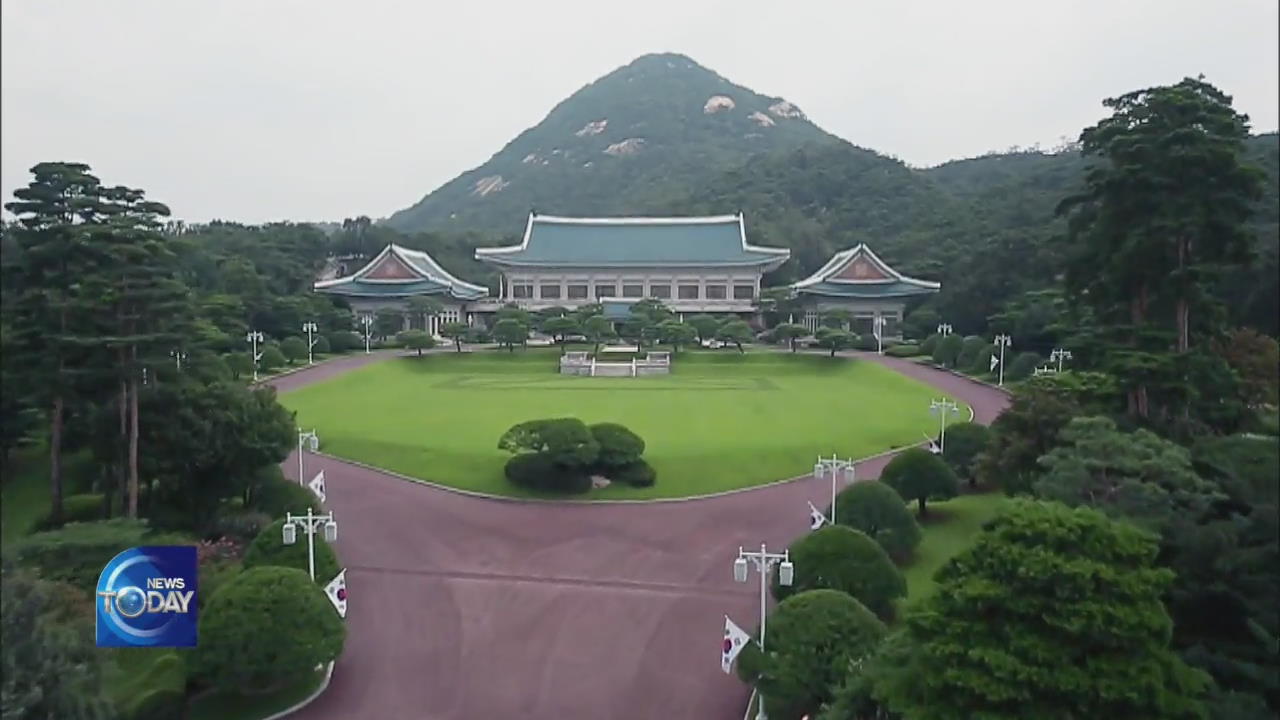
[Anchor Lead]
The presidential office has rejected Japan's request to form a third party arbitration panel, to resolve disputes surrounding South Korean Supreme Court rulings on Tokyo's wartime forced labor. Meanwhile, Seoul is also continuing a hard-line response to Japan's export restrictions, with the President making his stance very clear through his messages. For our first story, we take a look at why the top office found Japan's offer unacceptable.
[Pkg]
On June 19th, Japan requested the formation of a third party arbitration panel to discuss the wartime forced labor issue. It said the offer is in line with a treaty the two countries signed in 1965 related to colonial matters. For the makeup of the mediation panel, Tokyo proposed that each side select a country that will choose one member each for the panel. And these countries will then select another country which will also choose a panel member. Japan had requested that South Korea respond by Thursday, but the presidential office has rejected the offer even before the deadline. Two reasons were given for the rejection. One is that in a country where the rule of law clearly separates the three government branches, the administration cannot interfere in judicial rulings. The second is that South Korea is not obligated to accept Japan's offer because it has not consented to Japan activating article 3 of the 1965 agreement in the first place. Cheong Wa Dae said the Seoul government will not convey any response to Japan. It also affirmed that its position on resolving the forced labor issue remains unchanged. The office said it reviewed the compensation option of South Korean and Japanese firms joining to create a joint fund, noting the victims support this plan. But it also said that a compensation plan involving the South Korean government is not even under review. Cheong Wa Dae says it cannot accept Japan's offer because it goes against principles, however it intends to continue diplomatic efforts toward a resolution.
[Soundbite] PRES. MOON JAE-IN(TOP AIDES MEETING, JUL. 16) : "Korea seeks talks to discuss a reasonable solution the victims and the Korean and Japanese public can find acceptable."
If Seoul fails to respond to Japan's offer by Thursday, Tokyo may impose further retaliatory measures while the bitter standoff between the two sides is expected to continue for the time being.
The presidential office has rejected Japan's request to form a third party arbitration panel, to resolve disputes surrounding South Korean Supreme Court rulings on Tokyo's wartime forced labor. Meanwhile, Seoul is also continuing a hard-line response to Japan's export restrictions, with the President making his stance very clear through his messages. For our first story, we take a look at why the top office found Japan's offer unacceptable.
[Pkg]
On June 19th, Japan requested the formation of a third party arbitration panel to discuss the wartime forced labor issue. It said the offer is in line with a treaty the two countries signed in 1965 related to colonial matters. For the makeup of the mediation panel, Tokyo proposed that each side select a country that will choose one member each for the panel. And these countries will then select another country which will also choose a panel member. Japan had requested that South Korea respond by Thursday, but the presidential office has rejected the offer even before the deadline. Two reasons were given for the rejection. One is that in a country where the rule of law clearly separates the three government branches, the administration cannot interfere in judicial rulings. The second is that South Korea is not obligated to accept Japan's offer because it has not consented to Japan activating article 3 of the 1965 agreement in the first place. Cheong Wa Dae said the Seoul government will not convey any response to Japan. It also affirmed that its position on resolving the forced labor issue remains unchanged. The office said it reviewed the compensation option of South Korean and Japanese firms joining to create a joint fund, noting the victims support this plan. But it also said that a compensation plan involving the South Korean government is not even under review. Cheong Wa Dae says it cannot accept Japan's offer because it goes against principles, however it intends to continue diplomatic efforts toward a resolution.
[Soundbite] PRES. MOON JAE-IN(TOP AIDES MEETING, JUL. 16) : "Korea seeks talks to discuss a reasonable solution the victims and the Korean and Japanese public can find acceptable."
If Seoul fails to respond to Japan's offer by Thursday, Tokyo may impose further retaliatory measures while the bitter standoff between the two sides is expected to continue for the time being.
이 기사가 좋으셨다면
-
좋아요
0
-
응원해요
0
-
후속 원해요
0










![[HEADLINE]](https://news.kbs.co.kr/data/news/2019/07/17/4244242_10.jpg)
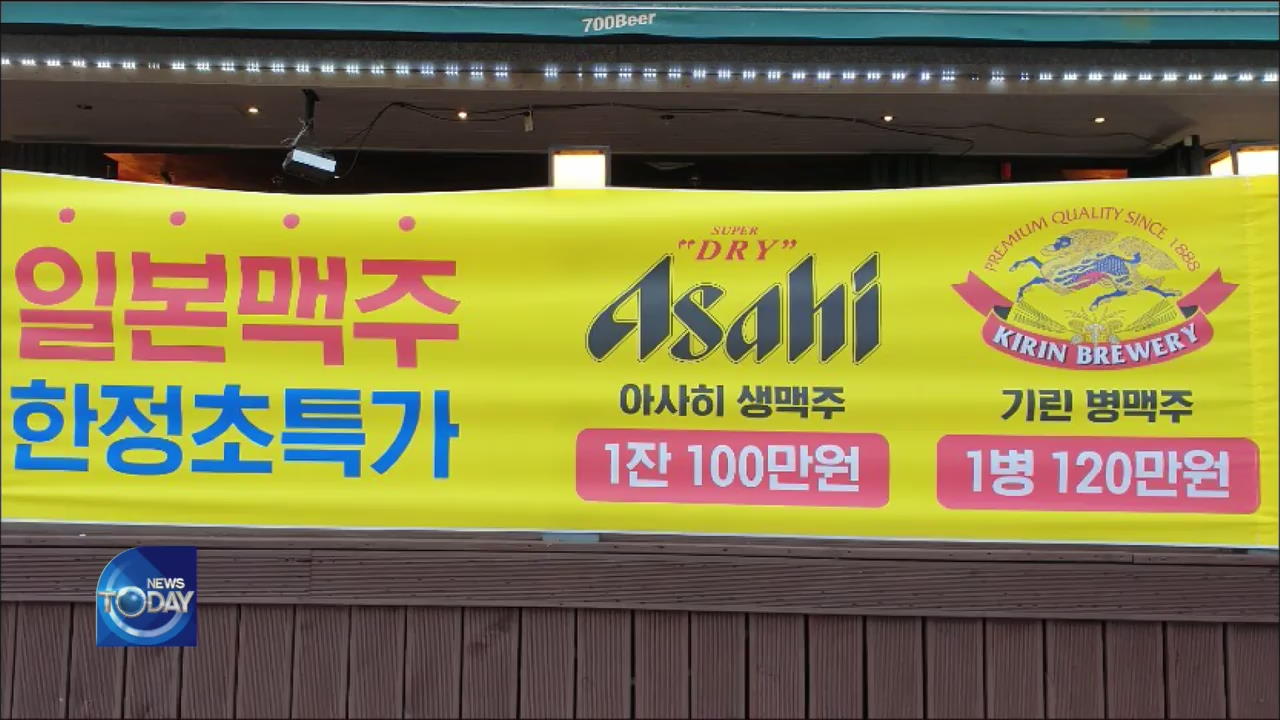
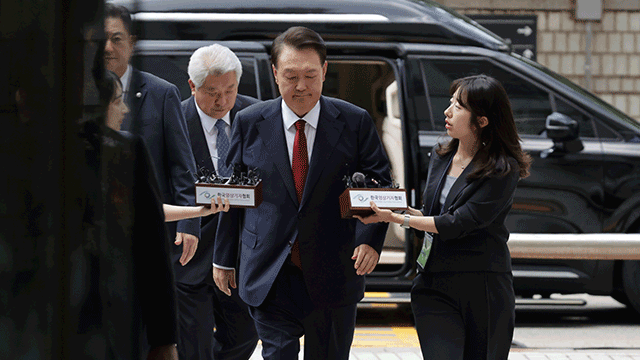
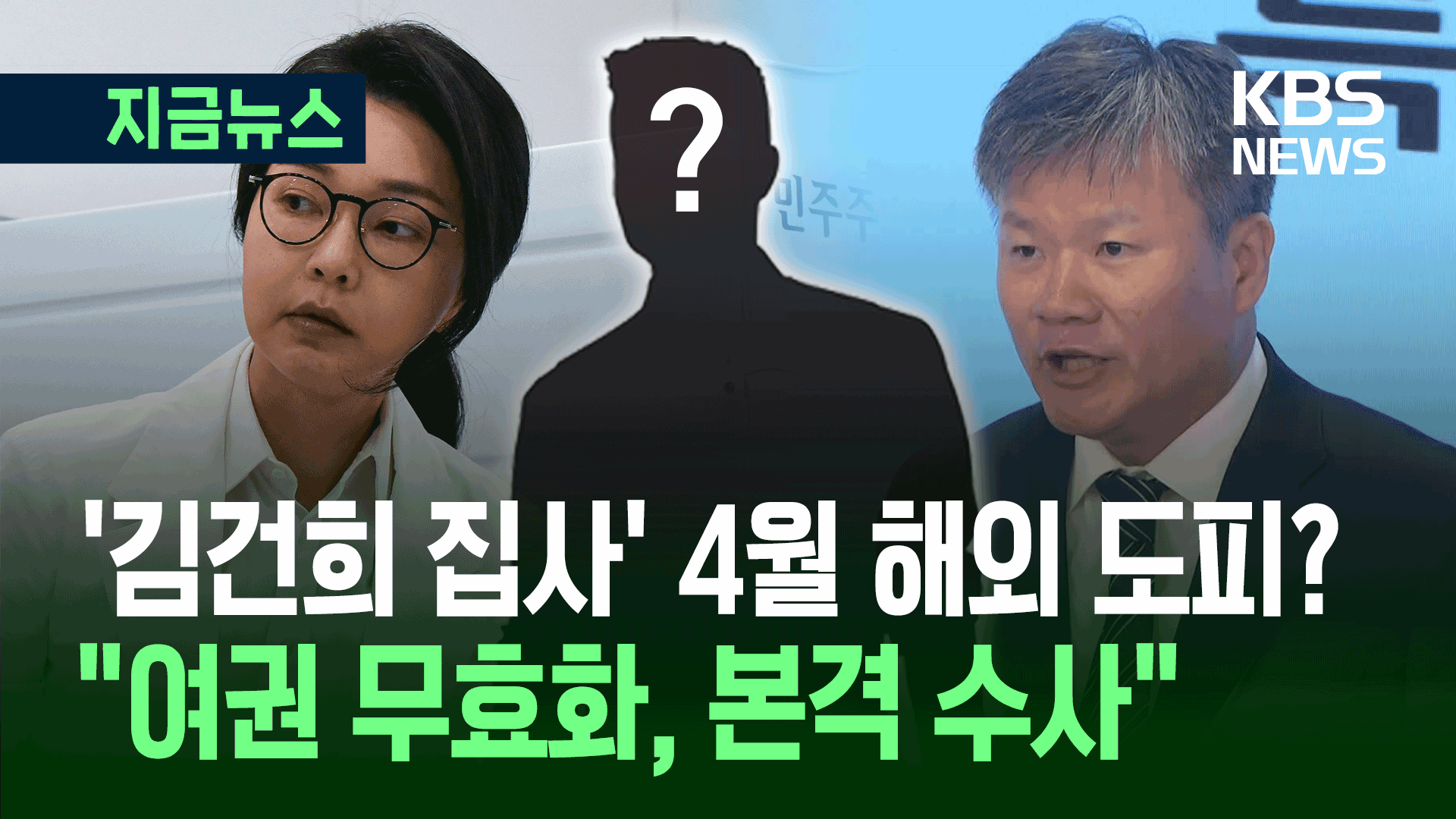
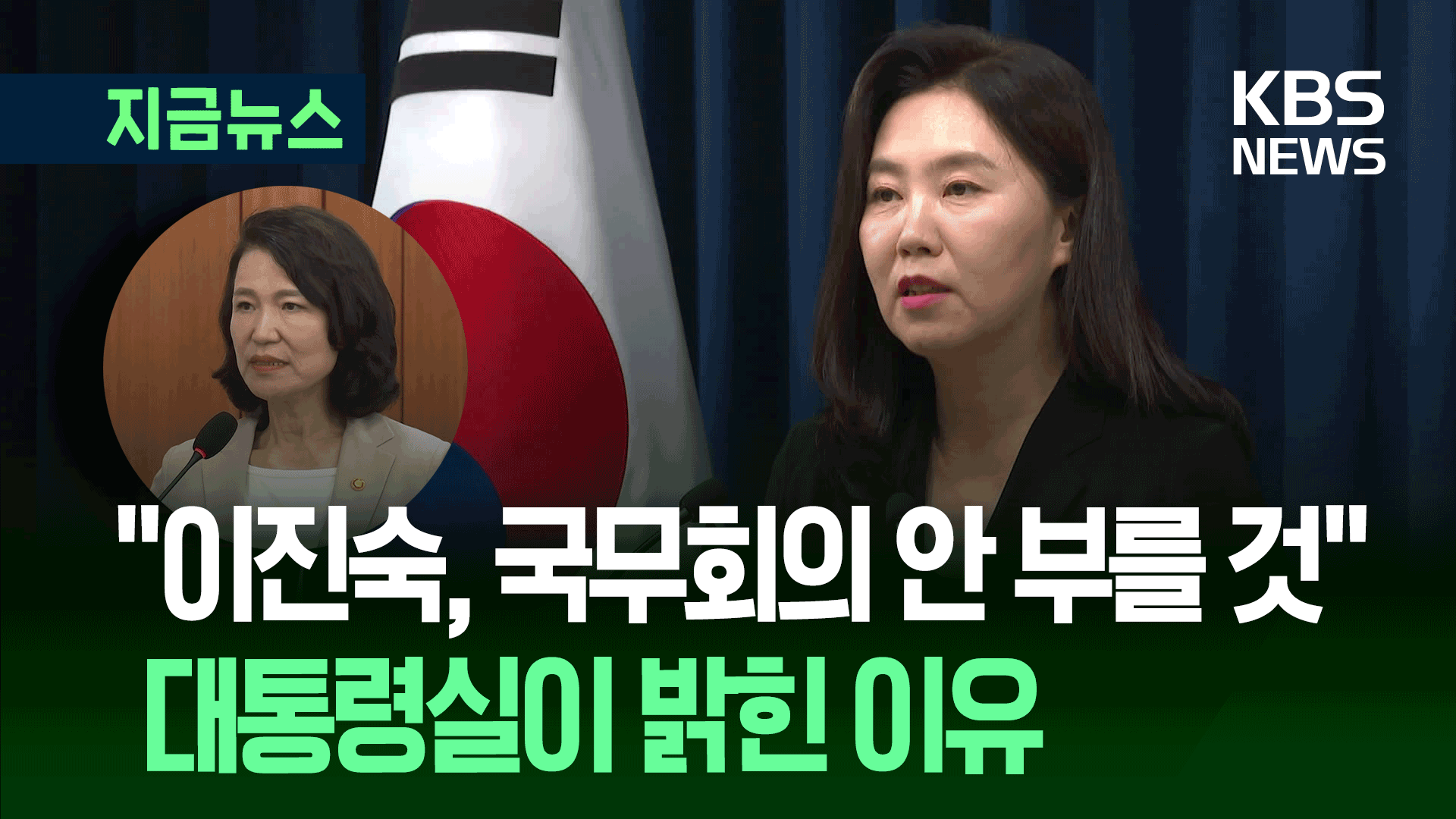
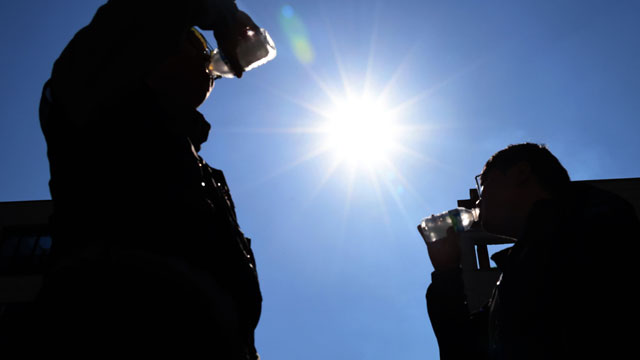

이 기사에 대한 의견을 남겨주세요.